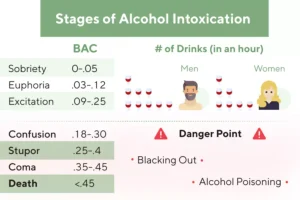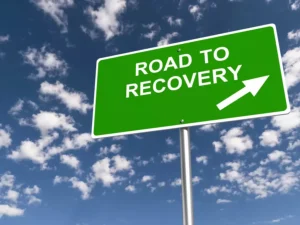
Volpicelli says that some of the negative effects of alcohol on mental health can be reversed if you stop drinking. A big part of alcohol recovery is taking steps to improve your lifestyle through changes like diet and exercise. If you’ve been trying to get to and maintain a weight that supports your health, quitting alcohol can help you meet that goal. Individuals who stay sober contribute to the overall well-being of their communities by reducing crime rates, increasing productivity, and fostering healthier relationships. Moreover, they can actively participate in positive activities and contribute to the community in meaningful ways, creating a more vibrant and supportive environment for everyone.
Begin Your Recovery Today

One of the most profound ways that alcohol affects you is through what it does to your body. After you drink alcohol, Volpicelli explains that the small molecules inside it get absorbed by your gut. From there, they travel to other parts of your body and affect organ systems, including the cardiovascular, immune, and nervous systems, along the way. These calls are offered at no cost to you and with no obligation to enter into treatment.
- When things like this happen, find a sober friend or loved one you can talk to for support.
- Staying sober can help lower your blood pressure levels and reduce these risks, contributing to a healthier life.
- You may also self-medicate your sleep issues using drugs or alcohol.
- One of the benefits is improved sleep patterns, leading to a reduction in instances of insomnia.
- Our Treatment Advisors are available 24 hours a day to help you or a loved one access care.
Substance Abuse Hurts Families
- Improved communication and healthier boundaries in relationships also result from sobriety.
- They also recommend avoiding short-term rehabilitation, as three months is the minimum recommended length of stay, and more than one course of treatment may be required.
- Quitting alcohol won’t just protect your physical health—it can also improve your mental well-being.
- Substance abuse may also interfere with your appetite and lead to poor nutrition.
- If you suffer from addiction, it is likely that you are unproductive at your job, are unable to successfully complete daily tasks and are irresponsible with your finances.
- By Buddy TBuddy T is a writer and founding member of the Online Al-Anon Outreach Committee with decades of experience writing about alcoholism.
Sobriety can also help improve your mental health, reducing symptoms of depression and anxiety and helping you experience a greater sense of well-being. Everything in your life can feel more manageable without the effects of alcohol and drugs. Strictly speaking, sobriety is the state of being sober—not being under the influence of alcohol or drugs. However, the word is often used in different ways in different contexts. Many 12-step programs suggest that sobriety means total abstinence, which means never using the substance again.
Stronger Relationships
Feeling guilty or ashamed of past behavior or actions during active addiction is natural and healthy. A mental health professional can help you cope with some of the challenges you’ll face on your path to sobriety. You may also need to change your route to work or home in order to avoid any triggers, or people, places, or things that make you want to use drugs or drink again. Some of the immediate changes you will need to make will be obvious—like not hanging around the people that you used with or obtained drugs from. After all, you can’t hang around your drug dealer or old drinking buddies and expect to remain sober for very long. Post-acute withdrawal syndrome (PAWS) involves withdrawal symptoms that persist past the detox period.

The severity of the memory troubles depends on how often the addict uses the drug, but memory is affected regardless. The long-term use of inhalants has also been linked to memory loss. Additionally, children of addicts are more than twice as lucky to suffer physical and/or sexual abuse at the hands of their parents. Heavy drinking can actually cause the part of the brain that’s critical to memory and learning (hippocampus), to shrink. Studies have also connected alcohol use to an increased risk of stroke, especially for people under the age of 45 years old. Alcohol can also affect digestion, storage, utilization, and excretion of nutrients.
- And, it doesn’t have to be the New Year or even any event at all great time to make positive changes in your life, and getting sober can be one of them.
- But when you’re sober, you’ll be able to think more clearly, fact-check, and make better financial decisions.
- The FHE Health team is committed to providing accurate information that adheres to the highest standards of writing.
Lend a helping hand – One of the best ways to keep your mind off yourself and also become grateful for the good things in your life is to help others who are less fortunate. Consider volunteering at a local animal shelter, homeless shelter, reasons to stay sober etc. The structure of these programs is designed to provide a sense of community and accountability, as well as to provide a sense of community and accountability. Let’s further examine the reduced legal consequences of sobriety.

Some studies find that this structure, along with a start date for sobriety and milestones, is important to some people in recovery. You can remember everything and not feel that sense of terror of waking up and not remembering what you said or did the previous night. You don’t have to try and wrack your brain to remember who you were with or what happened. You’re no longer waking up with that sinking feeling that something terrible might have happened the night before, but you can’t quite remember what. You don’t have to call or text the people you were with and try to piece together the previous night.

Sobriety can be a particularly challenging pursuit for someone with an addiction like alcohol use disorder. When you’re using drugs or alcohol, you can feel like you’re skating through life, but never really feeling or being in any of the moments. Living a drug-free life or an alcohol-free life means not only that you can be present, but that you’ll https://ecosoberhouse.com/article/what-is-the-difference-between-alcohol-abuse-and-alcoholism/ remember everything in your life in a clear-headed way. Maintaining sobriety requires a combination of strategies and tips that can help individuals stay on track toward their recovery goals. Building a strong support system is crucial, whether it’s friends, family, or fellow sober individuals who understand the challenges of addiction.
If you recently had surgery or an injury, your doctor will be careful with the pain medication they give you, because some of those drugs can make you more likely to relapse. Ask your doctor about nonmedical ways to manage your pain, like massage or acupuncture. You may want to start an exercise routine — exercise releases brain chemicals called endorphins, which can make you feel good. Or you might rather spend time volunteering for a good cause, like an animal shelter or children’s hospital.